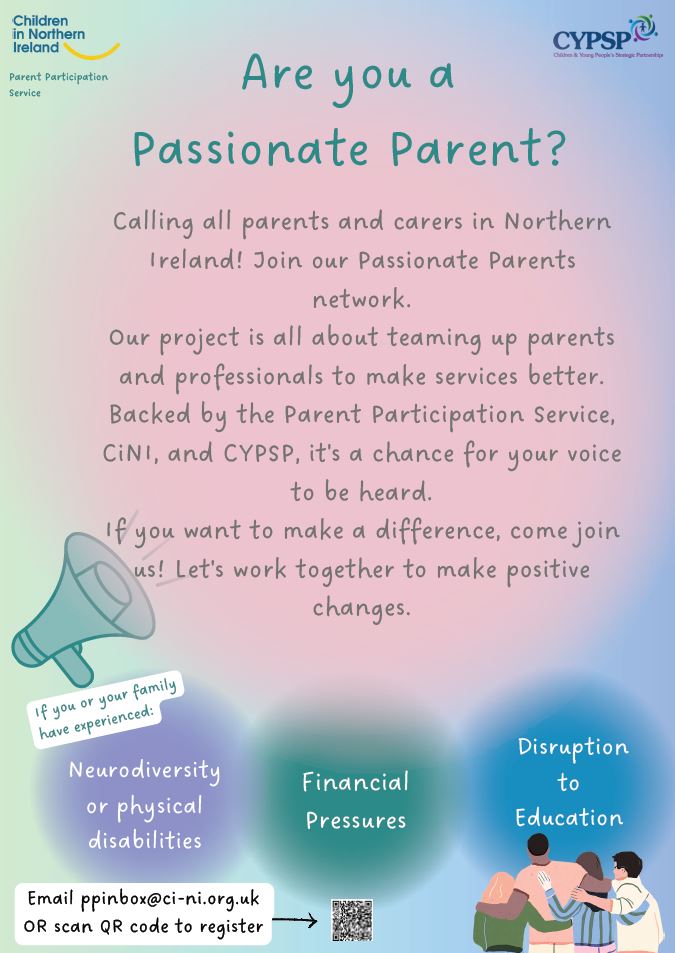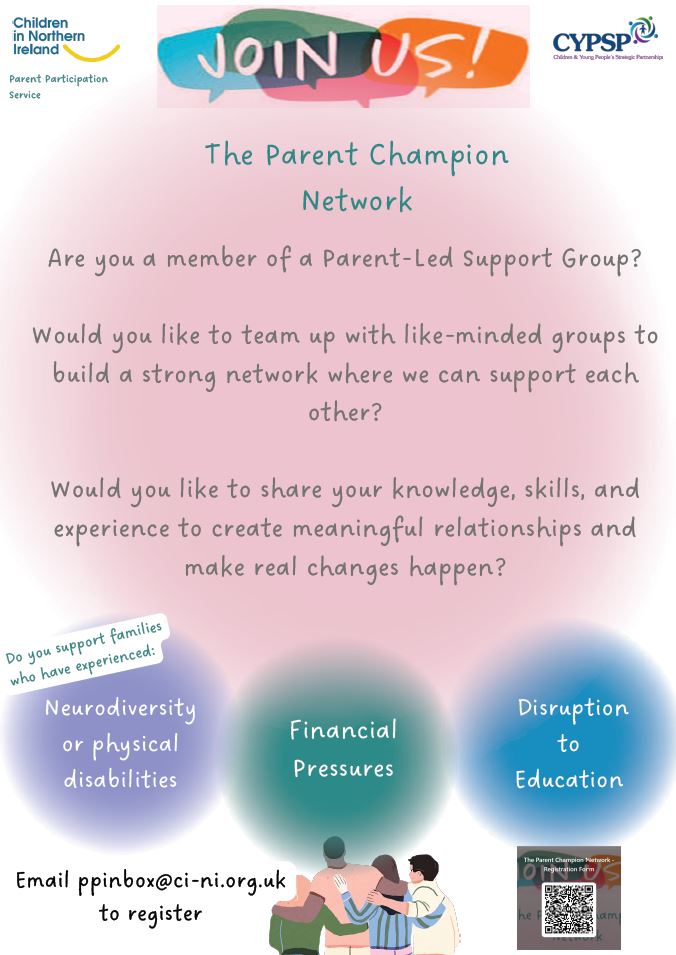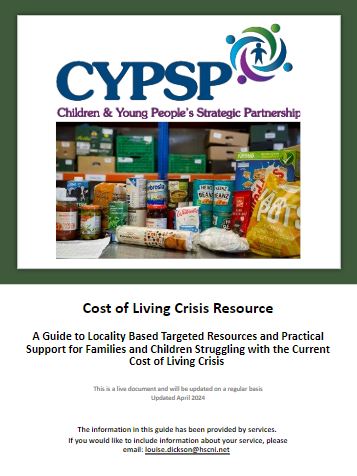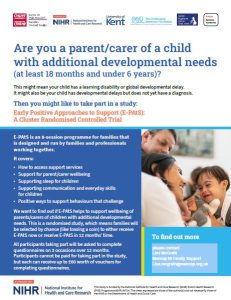Are you a passionate parent? Calling all parents and carers in Northern Ireland! Join our Passionate Parents Network.
Download Easy Read version of Passionate Parent flyer with voice over

The Parent Champion Network. Would you like to team up with like-minded groups to build a strong network where we can support each other?
Download Easy Read version of The Parent Champion Network




